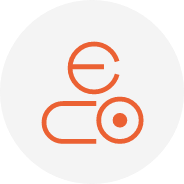In Which Situations Is the Over-Yield Angle Method Not Suitable for Bolt Tightening?
In modern industrial production, bolt tightening is a crucial step to ensure the stability of component connections. Although the over-yield angle method, as a tightening strategy, can effectively enhance the utilization rate of bolts, strengthen the stability of connections, and reduce failures such as loosening and breaking, it is not suitable for certain working conditions.
Limitations of the Over-Yield Angle Method
The core of the over-yield angle method lies in controlling the tightening angle of the bolt after reaching the yield point to achieve clamping force. However, when the consistency of the connected parts is poor, especially in soft connection working conditions containing materials like plastic and rubber, the drawbacks of this method become apparent. Due to the low elastic modulus of soft connection materials, there is a significant variation in the tightening angle of the bolt to the yield point. This can lead to some workpieces having excessively high final torque, and even bolt breakage in extreme cases. Conversely, other workpieces may have insufficient torque, failing to exceed the yield point, resulting in significant deviations in the final clamping force and severely affecting the quality of tightening.
Danikor's Tightening System Solutions
In response to the challenges posed by soft connection working conditions, Danikor's tightening guns offer more flexible and intelligent tightening strategies. Danikor's tightening guns, equipped with self-developed high-precision algorithms, can implement various tightening strategies, including clamping torque, slope, angle, and yield point. The multi-stage strategy control function supports customized multi-step tightening processes. By monitoring the slope and angle in real-time, it effectively addresses process challenges such as floating lock and stripped threads. This multi-step tightening strategy is particularly suitable for soft connection working conditions, effectively reducing torque decay and ensuring the final tightening quality.
Additionally, Danikor's tightening systems are equipped with full-process data traceability functions, which can upload tightening data to the MES system in real-time. They also store a large amount of results and curves locally, supporting CPK analysis and process optimization. This means that every step and parameter in the tightening process can be accurately monitored and recorded. In the event of an anomaly, it can be quickly located and resolved, thereby ensuring the stability and consistency of product quality.

Application Scenarios and Advantages
Danikor's screwdriving systems are widely used in various industries, including new energy vehicles, automotive electronics, 3C electronics, communications, and home appliances. In the assembly of new energy vehicle power batteries, Danikor's screwdriving systems have designed multi-channel feeding solutions for long screws. Combined with error-proofing systems and data traceability functions, they help leading battery companies improve production efficiency and product quality. In the 3C electronics industry, the high-precision control and intelligent management functions of Danikor's tightening guns can meet the assembly requirements of precision components, ensuring that every screw reaches the specified tightening state.
Danikor's screwdriving systems not only have significant technical advantages but also provide users with a one-stop tightening solution through their intelligent management systems. The torque control standard deviation accuracy of their sensor-based tightening tools reaches ±1.67%, covering a torque range of 1-200 Nm, which is suitable for a variety of high-precision assembly scenarios. These high-precision and highly flexible tightening tools can effectively deal with various complex working conditions, ensuring the reliability and stability of the production process.
In the process of bolt tightening, although the over-yield angle method has its advantages, it has obvious limitations in soft connection working conditions. Danikor's tightening guns, with their multi-step tightening strategies and intelligent management functions, provide an effective solution to this problem. Their high-precision control, multi-strategy support, and full-process data traceability functions not only enhance tightening quality but also significantly improve production efficiency and management levels.











